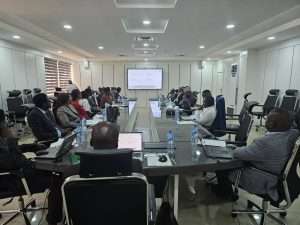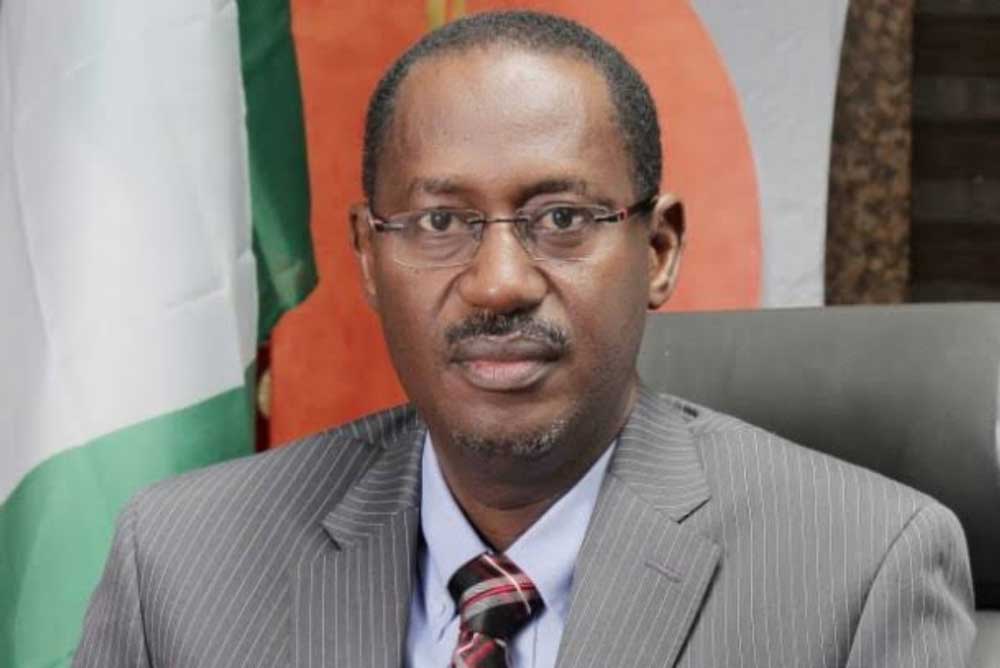The Federal Government National Housing Data (NHD) Technical Committee, a sub-team within Nigeria’s 13-member Steering Committee on the National Housing Data Centre has advanced its work on accurate data gathering to provide Nigeria with the information needed to address the housing deficit across the country.
During a workshop held at the National Bureau of Statistics (NBS) in Abuja, Mr. Taofeeq Olatinwo of the Nigerian Mortgage Refinance Company (NMRC) and Chair of the Technical Committee, said the NHDC was designed to align stakeholders on the mission of building a centralized housing data system to support Nigeria’s housing policy efforts.
The committee is committed to addressing Nigeria’s housing deficit by creating a National Housing Data Centre, which will provide essential data for strategic housing policies and investments. Mr. Olatinwo acknowledged the importance of collaborative efforts, stressing that members should stay dedicated to the committee’s 12-month timeline, which began on August 20, 2024.
In his opening remarks, he commended NBS for hosting the workshop and reinforced the need for a unified and continuous commitment among members.

Mr. Fafunmi, representing NBS, underscored the importance of collaboration, stating, “If we cannot count it, we cannot manage it,” thus reinforcing the objective of establishing a robust National Housing Data Centre to serve as the foundation for Nigeria’s housing policies and development strategies.
The committee reviewed the terms of reference set by the Minister of Housing and Urban Development, Arc. Ahmed Dangiwa. Their primary goal is to create transparency and accessibility in housing data to support affordable housing and the well-being of Nigerians. The joint committee’s tasks include monitoring policy implementation, providing oversight for the project’s partnerships, and facilitating collaboration between stakeholders to share insights and foster coordinated action.
The committee is charged with developing a comprehensive framework to address data collection, analysis, and distribution of housing data, covering aspects such as the number of habitable and non-habitable properties and demographic information. By compiling accurate data, the committee aims to lay a foundation for housing policies that effectively address Nigeria’s housing shortage while fostering sustainable development.
Participants shared presentations on existing data resources that can support the National Housing Data Centre’s mission. The National Population Commission (NPC), represented by Mr. Ohagwa Patrick, discussed its work in Geo-Spatial and Demographic Data via Enumeration Area Demarcation (EAD), providing critical data on residential and non-residential buildings, including property addresses and structural condition.
While the Housing Development Advocacy Network (HDAN) emphasized the importance of collaborative efforts among stakeholders to bridge the housing gap in Nigeria and stressed the need for data to support affordable housing initiatives, the Federal Mortgage Bank of Nigeria (FMBN) highlighted data on housing demand and supply, cooperative housing initiatives, and loan information that supports affordable housing solutions.

On its part, NMRC introduced its Housing Market Information Portal (HMIP), which provides valuable market insights for home buyers, developers, and policymakers by offering data on property listings, a mortgage calculator, and real estate market trends. The Real Estate Developers Association of Nigeria (REDAN) presented information on registered land titles, construction costs, and the number of ongoing and completed buildings, which supports both developers and investors.
The Central Bank of Nigeria (CBN) contributed data on weekly building material prices across major cities, which will be essential for monitoring fluctuations in the housing market.
The committee established four sub-teams aligned with the terms of reference to carry out specific tasks essential to the success of the National Housing Data Centre project. These teams will develop the framework for establishing the data centre, design data-gathering strategies from public and private institutions, create channels for data distribution to investors and policymakers, and engage government entities to support the initiative.

Within the workshop, members engaged in team discussions to outline specific action plans, ensuring all tasks aligned with the overall project timeline. Members of the Framework 2 sub-team, in particular, were tasked with gathering data from relevant stakeholders to support the ongoing development of the project’s infrastructure.
The Technical Committee has also implemented a structured communication and reporting protocol, with quarterly updates set to be provided to the Minister of Housing and Urban Development and monthly progress reports to the Steering Committee. This approach ensures the committee’s activities are monitored closely and allows for adjustments to strategies where necessary, keeping the project on track to meet its 12-month goal.
All members at the workshop including the Housing Development Advocacy Network expressed commitment to work collaboratively and purposefully toward building a comprehensive housing database that will transform Nigeria’s housing sector.
With a well-coordinated effort, the National Housing Data Centre aims to empower stakeholders with accurate data that will guide strategic housing policies, reduce the housing deficit, and support Nigeria’s economic stability and growth in the long term.




